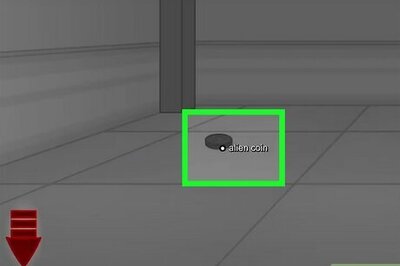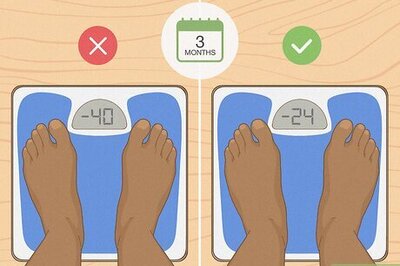
views
Kolkata: As the election juggernaut moves from the colder climes of the Darjeeling hills to the hot and humid districts of southern Bengal, the poll temperature is also likely to go a few notches up from fourth phase onward. Polling is still pending in 32 of the total 42 Lok Sabha seats at the state but the electoral process is finally entering districts where Trinamool Congress is likely to fare better, just as it did in the 2014 general elections.
While north Bengal has always been more dynamic in its political ambition, the vibrancy of electioneering is nowhere more apparent than in south Bengal. Although Darjeeling has often drawn attention for its volatility, it is Kolkata, the state capital in South Bengal, where the battle has always been more intense. The BJP is showing signs of gaining grounds here and therefore the battle will prove a litmus test for Trinamool Congress chief Mamata Banerjee.
The reason is, of the 10 seats polled in three phases, six were in 2014 won by the CPI-M, including Raigunj by Mohammad Salim and Murshidabad by Badaruddoza Khan. Congress had won all its four seats -- Malda North and South, Jangipur and Berhampore -- from these two districts. Berhampore in Murshidabad district will go to the hustings in the fourth phase on April 29.
The BJP, despite having emerged as the most viable opposition force in the state, has hardly been able make any dent in the region over the last eight years, ever since Banerjee swept to power in 2011.
But signs of change have been observed in the last 20 months in Jungalmahal and south Bengal after the panchayat polls. It’s in these districts that Trinamool will have to prove its mettle because for the BJP, any seat other than the existing Asansol and Darjeeling will make it look like Banerjee is losing her grip. “Mamata didi will be shocked with the results this time in Bengal. Just take a look at the number of people attending our rallies,” says Dilip Ghosh, state BJP president.
But the BJP will have to win more seats to prove its claims of being the preferred choice of the electorate and the misrule in Bengal.
Kapil Thakur, political expert, says that before the political polarisation made its way for area domination – the issue of Ghoti (those who belong to western Bengal) and ‘Bati’ (who migrated to India during partition) always remains at the bordering areas of Bengal and Bangladesh.
“The BJP saw a huge opportunity in this and apart from playing on the religious lines, it is cultivating the Ghoti over Bati. That is why the party is so adamant on National Register of Citizens (NRC) and Citizenship Amendment Bill. There is no doubt that the BJP has gained in Bengal and Mamata lost her popularity after the panchayat polls in rural areas. The real challenge before the BJP now is to keep a balance between the Bengali sentiments and NRC,” Thakur said.
But despite the BJP’s strong religious political strategy, Banerjee will try hard to get support of the Muslim community which forms nearly 27.5% of the state’s total population. A majority of them (nearly 67 %) live in Murshidabad district and in North and South Malda, which are yet to go for polling.




















Comments
0 comment